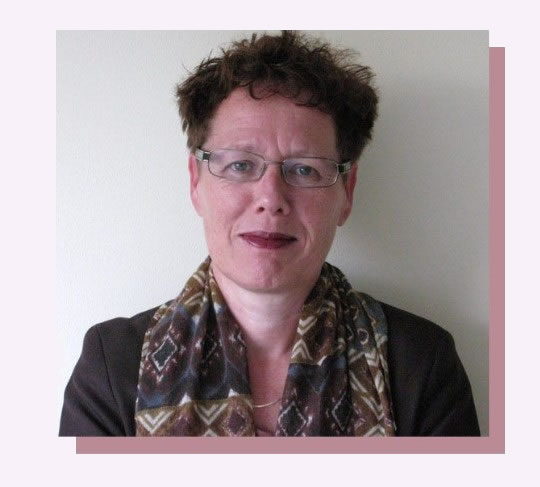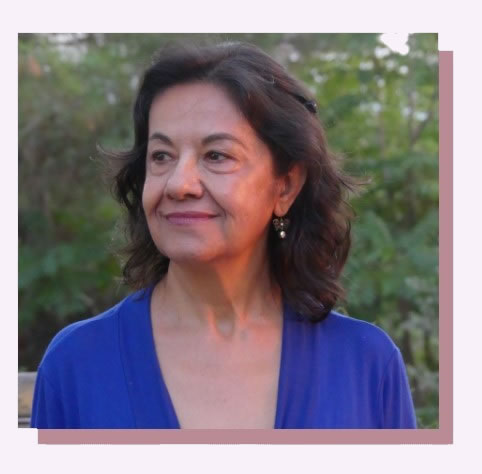Keynote Speakers
Thursday, November 28 / 9:30-10:30 a.m.
Francisca de Haan
Professor Emerita, Central European University (CEU)
Francisca de H aan is Professor Emerita of Gender Studies and History at Central European University (CEU) and currently Adjunct Program Head of the MATILDA MA in Women's and Gender History. She is also a Fellow at the International Institute of Social History in Amsterdam. Her research interests focus on transnational and intersectional women's and gender history, the histories of international women’s organizations, socialist and communist women's political activism, women's work, and women’s archives. In 2023, she edited The Palgrave Handbook of Communist Women Activists around the World, which has been published by Palgrave Macmillan.
aan is Professor Emerita of Gender Studies and History at Central European University (CEU) and currently Adjunct Program Head of the MATILDA MA in Women's and Gender History. She is also a Fellow at the International Institute of Social History in Amsterdam. Her research interests focus on transnational and intersectional women's and gender history, the histories of international women’s organizations, socialist and communist women's political activism, women's work, and women’s archives. In 2023, she edited The Palgrave Handbook of Communist Women Activists around the World, which has been published by Palgrave Macmillan.
Expanding Our Research Agenda: Women From the Region in the World Women’s Committee Against War and Fascism (WWCAWF, est. 1934)
Feminist historians are paying increasing attention to the World Women’s Committee Against War and Fascism (WWC, also: Comité Mondial des Femmes or CMF) and its role as an international women’s organization in the interwar period. We now know more of the WWC/CMF as co-initiator of “feminism for the Americas” (Katherine Marino, 2019), its role in France and some of its international outreach (Jasmine Calver, 2023), and its “substantial impact” on the Yugoslav women’s movement of the interwar years (Isidora Grubacki, 2024). But this is only a beginning. The WWC/CMF was established at a congress in Paris in 1934. The existing historiography does not discuss all delegations of Western countries, although some of these were of considerable size. Nor does it discuss countries or member organizations from this region even though—according to the WWC/CMF’s own sources—its founding congress was attended by women from Bulgaria, Croatia, Czechoslovakia, Greece, Hungary, Poland, Macedonia, Romania, Serbia, and Yugoslavia.
In my lecture, I will first provide a short historiographical overview. What do we know of the WWC/CMF and its member organizations? Secondly, what can we find out about the WWC/CMF women and member organizations not yet included in the historiography? It will become clear that many of its participants were involved in well-known national and international women’s organizations, then or later. Rather than seeing the WWC/CMF as a sort of anomaly in the international women’s movement, as seems to have been the case until recently, I will argue that its history can help us better understand linkages between women’s organizations, connections between women activists across Europe and through time, as well as the formative role of anti-fascism for a lot of women’s activism.
Friday, November 29 / 9:30-10:30 a.m.
Fatmagül Berktay
Professor Emerita, Istanbul University
 Fatmagül Berktay is Professor Emerita of Political Science and Women’s Studies and former Director of the Women’s Research Centre of Istanbul University has been part of the Turkish Women’s Movement since early 1980s. She acted as adviser to the state minister in charge of women’s affairs and represented Turkey in various international forums including the UN 1995 Beijing Women’s Conference. Her published books include Being a Woman, Living and Writing (in Turkish, 1991), Woman in the Face of Monotheistic Religions (in Turkish, 1996), Women and Religion (BlackRose Books, 1998), The Gender of History (in Turkish, 2003) which was also published in Arabic (Dar Kreideh, Beyrouth, 2009), The Call of Politics (in Turkish, 2010), Loving the World in the Present, Hannah Arendt’s Political Theory (in Turkish, 2012) and Ethics of Thinking (in Turkish, 2021). She was designated as a leader in Education in Turkey and was part of “The Hope Brigade” of Women in the World (WOW) Festival (March 2021). Currently she is working on political ethics, political evil and feminist history.
Fatmagül Berktay is Professor Emerita of Political Science and Women’s Studies and former Director of the Women’s Research Centre of Istanbul University has been part of the Turkish Women’s Movement since early 1980s. She acted as adviser to the state minister in charge of women’s affairs and represented Turkey in various international forums including the UN 1995 Beijing Women’s Conference. Her published books include Being a Woman, Living and Writing (in Turkish, 1991), Woman in the Face of Monotheistic Religions (in Turkish, 1996), Women and Religion (BlackRose Books, 1998), The Gender of History (in Turkish, 2003) which was also published in Arabic (Dar Kreideh, Beyrouth, 2009), The Call of Politics (in Turkish, 2010), Loving the World in the Present, Hannah Arendt’s Political Theory (in Turkish, 2012) and Ethics of Thinking (in Turkish, 2021). She was designated as a leader in Education in Turkey and was part of “The Hope Brigade” of Women in the World (WOW) Festival (March 2021). Currently she is working on political ethics, political evil and feminist history.
Women’s struggle for rights is never ending
The interwar period in Turkey was a time of radical transformations. In 1923 a Republic was proclaimed ending the centuries old Ottoman Empire and the Sharia law which forbade the participation of women in the public space. Women and their social status were central to the reform agenda of the young republic which brought about the secularization of legal and educational structures. The new Civil and Penal codes replacing the Sharia provided for women’s legal equality and enabled them to enter the public arena. In 1935 the 12th Conference of the International Woman Suffrage Alliance was held in İstanbul and also celebrated the recently introduced women’s suffrage in Turkey. Secular laws indeed made a radical change in women’s lives providing them with educational and career opportunities. However, discriminatory mentality, institutional structures and practices resisted to change as witnessed by the remaining biases in the secular civil and penal codes. Women’s struggle for emancipation gained momentum after 1980’s and especially in the 90’s focused on the demand for abolishing those biases in the law. The struggle finally achieved its goal in 2001 when the said laws were amended in favor of gender equality.
However now, after more than two decades of this achievement and when the 100th year of the Republic is being celebrated, women are faced with a backlash putting secularism and women’s gained rights in jeopardy. This bears witness to the fact that women’s rights are always fragile and that struggle for gaining and keeping them is a never ending process.
- 786 reads

 Web Engineer: Giorgos Akoumianakis
Web Engineer: Giorgos Akoumianakis